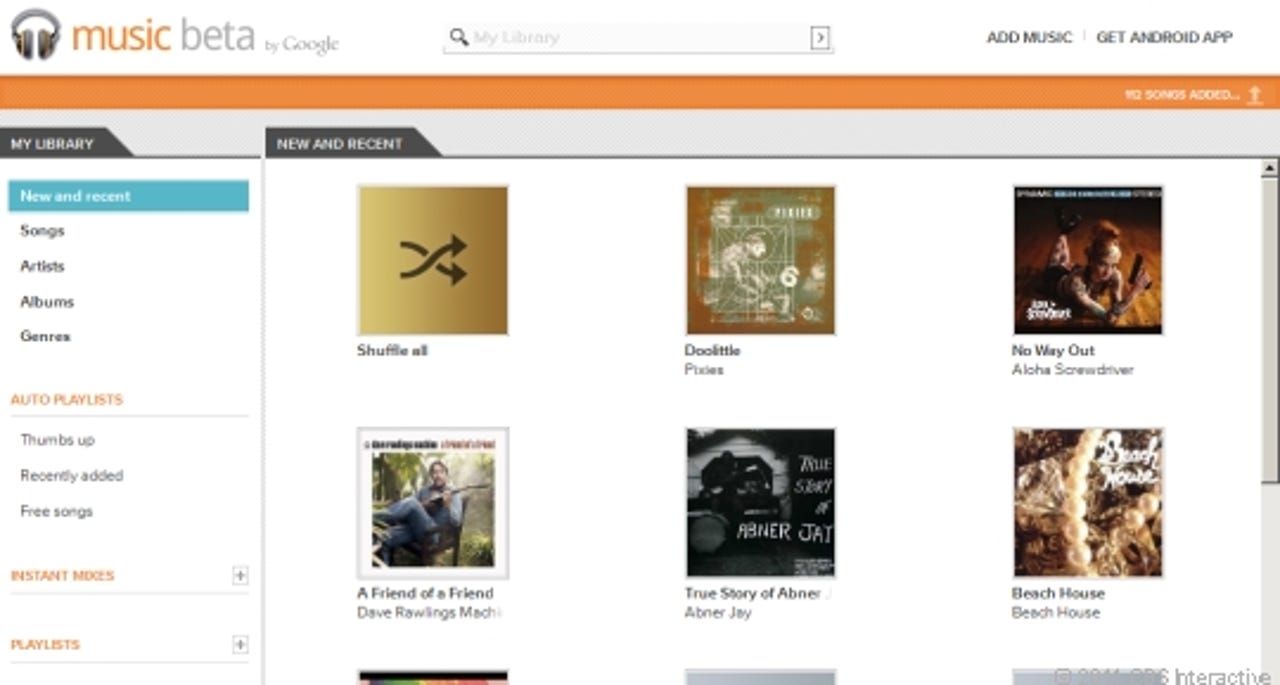Three things to watch: How Apple could help Google become a cloud music contender

Apple hasn’t even announced a cloud music service yet and already the bar has been raised, with the iCloud - or whatever Apple ends up calling it - fast becoming the one to beat. In part, that’s because Apple, according to reports, has already sealed deals with three of the 4 major record labels and is gearing up to make its cloud music announcement next month.
Also: Apple sets up cloud music deals: Fends off Amazon, Google
Even though Google jumped into the game before Apple, it’s clearly the underdog here. The cloud Music product it announced at Google I/O earlier this month is a bare-bones, invitation-only beta offering that is nothing more than an interface to manage tracks and playlists. It needs a lot of work.

Apple, on the other hand, has a huge advantage in the digital music game because of its success with iTunes and the iPod. Consumers are already invested in iTunes - and shifting them over to a cloud model should be a snap.
But the cloud also changes the way the game is played. And if Apple misses the mark or otherwise alienates some of that iTunes base, there’s a chance that Google will find its open window to gain some traction. After all, that’s really what this is about - challenging Apple, not beating Apple.
Apple clearly dominated digital music, largely because of the mainstream success of the iPod. But when Apple locked itself into an exclusive deal with AT&T for the iPhone in the U.S., it gave Google the opportunity it needed to develop Android into a solid competitor. That same window of opportunity is what Google - as well as Amazon, which launched its own cloud music offering weeks before Google - needs to develop a cloud music model that can give Apple a run for its money.
I’ll be on the lookout for three key things when Apple makes its cloud music announcement, watching for these open windows.
Pricing: Rumor also has it that there may be a subscription fee for the music cloud service. This could be a deal-breaker. I’m not too big on fees, especially when 1) a large chunk of the music I want to play is music that I’ve already purchased, 2) I’ll already be paying for tracks that I buy through iTunes, and 3) I also paid a pretty penny for the mobile device that I’m using to access that music. Haven’t I paid enough?
One other thing: I’m not big on renting music, either - a la Apple TV. If, for some reason, I decide to leave the service or stop paying down the road, I would want to keep the music I already paid for. That model of continuing to pay just to access music you’ve previously paid for is no good.
Capacity: Apple is big on tiered pricing based on storage. A 16 GB iPhone will cost you $199 while 32 GB will set you back $299. It was that way for the iPod, as well. But how does this play out in the cloud? Is that where the fees come in? There are plenty of people out there who have massive digital music collections, not to mention what they’re doing with photos and video. I’m really interested in seeing how Apple handles this.
Devices: Will Apple’s cloud only be accessible by Apple devices? Better yet, will there be a cloud music app for the Android, Blackberry and other non-Apple device holders? One of the reasons that iTunes and the iPod saw such amazing growth was because of its compatibility with Windows. Sure, there’s a huge install base of iPhone users - but the Android army certainly can’t be ignored, either.
Google’s Music cloud offering still needs a lot of work, more than just deals with the record labels. The company is already offering free storage for 20,000 tracks - a move that takes the worry out of slicing and dicing a music catalog to make it fit into the 5 GB that Amazon, for example, is giving away. But uploading that music to the cloud was a long, painful process (one that Apple may be addressing with its “scan and match” technology.)
With the Google cloud, I can catalog music from any source - iTunes purchases, Amazon purchases and even ripped CDs. And I can play it back from any browser or up to eight devices. That’s really what matters to me. I like iTunes and have a lot of time, energy and money invested in a hearty iTunes library - but the flexibility of the playback means a lot more to me now.
For now, I’m excited about what Apple has to offer - but I am hesitant, worried about Apple’s closed nature and wondering if the company might try to put me, my music and my wallet on lockdown inside a walled garden of Apple Music.
If that happens, consumers may find themselves suddenly much more interested in what Google might have to offer.
Related:
- Google Music Beta walkthrough (photos)
- Google to Hollywood: We’ll do music with or without you
- Google to introduce music service without major label support
- Nuance + Lala + MobileMe set stage for Apple cloud assault
- How Amazon has outsmarted the music industry (and Apple)
- Amazon debuts Cloud Drive, music industry whines: The screen that will end up in court
- Amazon Cloud Drive (photos)
- Hands on tour of the Amazon Cloud Drive and Amazon Cloud Player